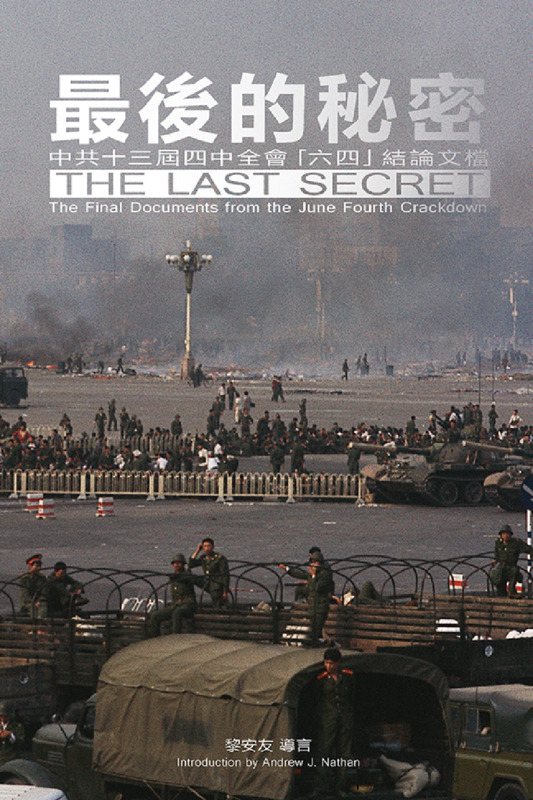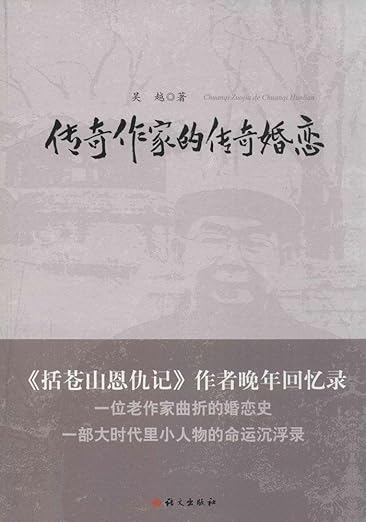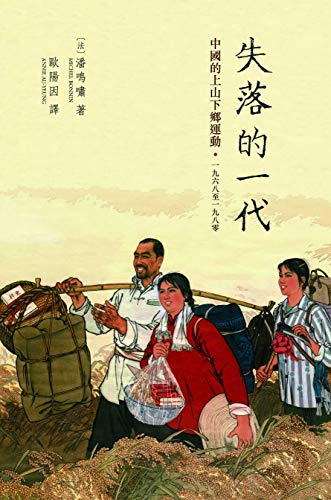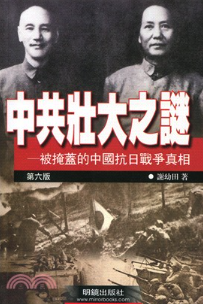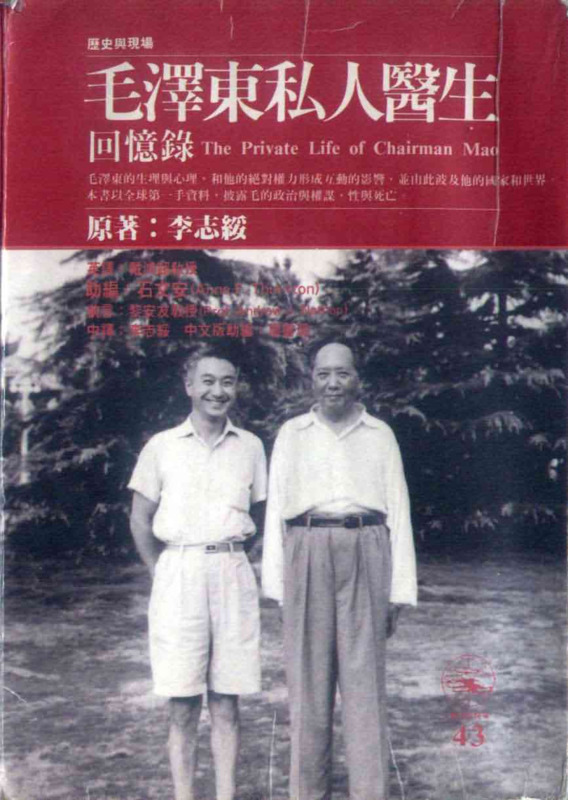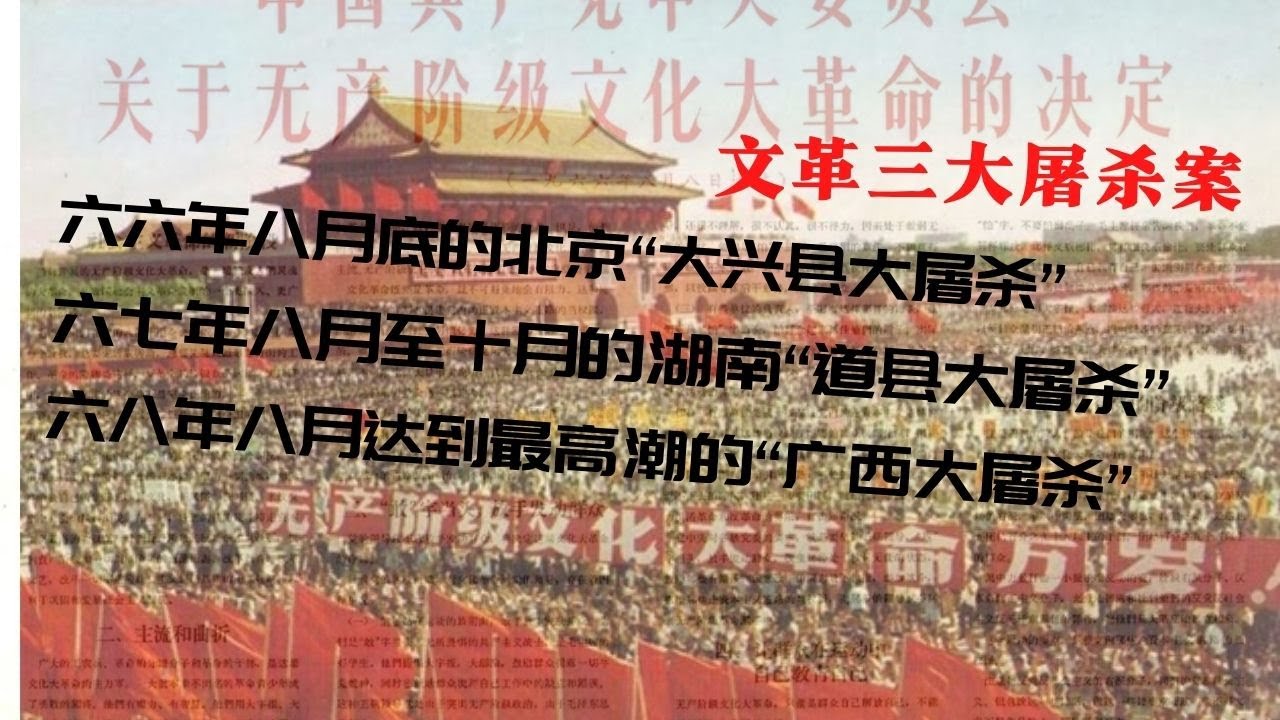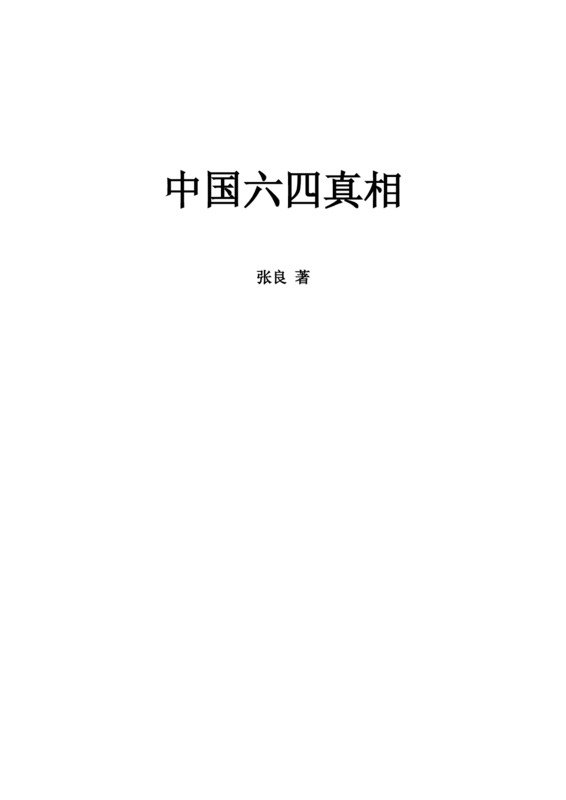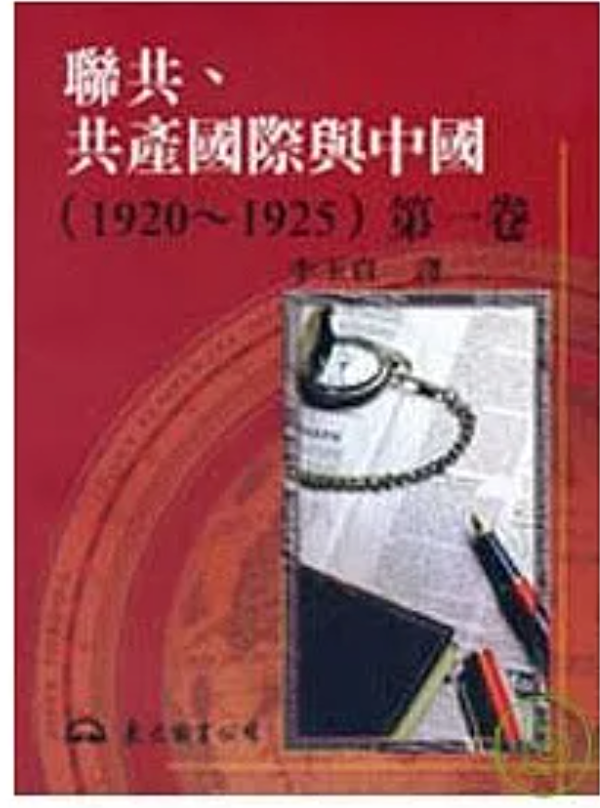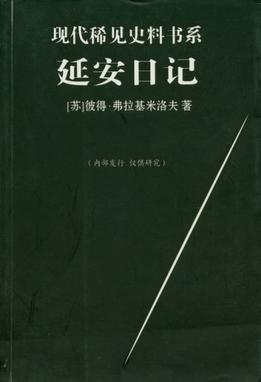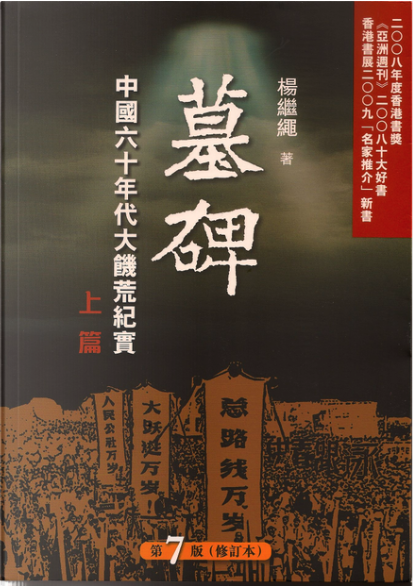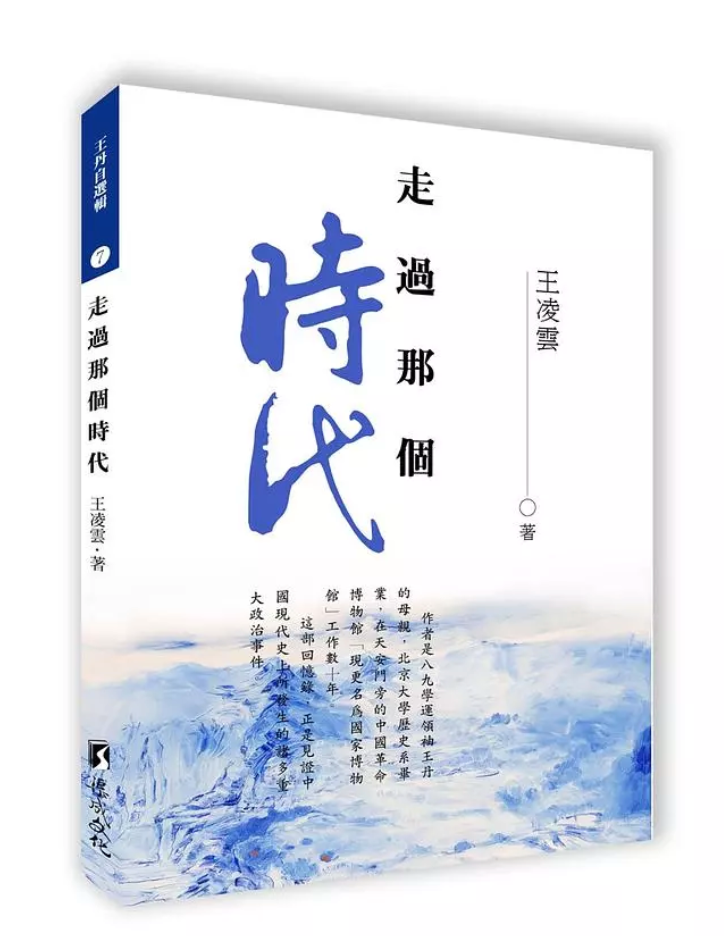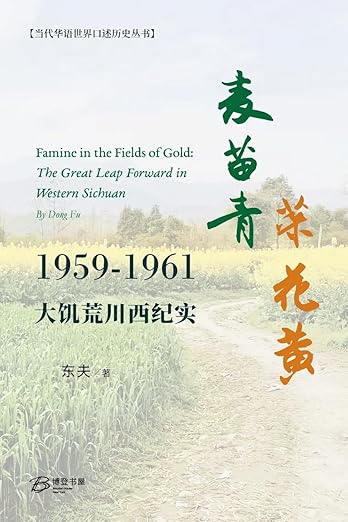Explore the collection
Showing 149 items in the collection
149 items
Book
The Last Secret : The Final Documents from the June Fourth Crackdown, Introduction by Andrew J. Nathan
The documents in this book come from two high-level meetings of the CCP held after the June 4 Tiananmen Square Incident in 1989, namely, the Sixth Plenary Session of the Sixth Committee of the Beijing Municipal Committee of the CCP and the Fourth Plenary Session of the Thirteenth Central Committee of the Chinese Communist Party (CCP), which was held on June 23rd and 24th at the Beijing West Guest House. The author claims that the documents were copied and kept for many years by an unnamed senior official within the CCP. This set of documents was formed when the CCP made its final conclusions on the June 4 incident. It is also a record of the high-level political operations within the CCP. These documents reveal the ultimate secret of the mechanism by which the Communist Party has always held absolute power. It was published by New Century Press in 2019. Special thanks to Bao Pu, founder of Hong Kong's New Century Press and son of Bao Tong, former political secretary of Zhao Ziyang, for authorizing CUA to share the book.
Book
The Legendary Marriage of A Legendary Writer
The author, Wu Yue, was the editor of several media including Yuwen Chubanshe. This book, as his memoir, recreates his personal destiny in different social situations, including the anti-rightist and Cultural Revolution and other special times, the frustrations of a generation of intellectuals held hostage in the political wave. The book tells the story of the author's many marriages and love affairs under special political circumstances. It also analyzes the deformity and absurdity of the political re-education through the labor system as well as the impact on humanity.
Book
The Lost Generation: China's Sending to the Countryside Movement (1968-1980)
After the outbreak of the Cultural Revolution in 1966, 1,700 Chinese urban youths were deported to the countryside from 1968 to 1980. This was an organized population transfer and a radical political movement that was named the "Going to the Countryside" movement. It was unprecedented. The movement had a profound impact on a whole generation of young people in China's towns and cities. Not only did it disrupt their lives and deprive them of education, it also affected their families and society as a whole. This book by French sinologist Michel Bonnin reveals the ins and outs of this movement. It also explores its deep imprint on China's society, politics, and economy as well as the historical place it occupies.
Book
The Mystery of the Growth of the CCP
The author of this book, Xie Youtian, a former researcher at the Sichuan Academy of Social Sciences, was invited to be a visiting scholar at Stanford University in the late 1980s and a guest researcher at the Hoover Institution. This book describes how the Chinese Communist Party took advantage of the Japanese invasion of China to build up its strength and eventually gained power. It was published by Mirror Books in Hong Kong in 2002.
Book
The Power of Tiananmen:State-Society Relations and the 1989 Beijing Student Movement
<i>The Power of Tiananmen: State-Society Relations and the 1989 Beijing Student Movement</i> is a sociological monograph. It explains the process of the 1989 school movement and interprets the political and economic situation from four perspectives: state legitimacy, ecological environment and mobilization structure, discourse and modes of action, and public opinion. Author Zhao Dingxin interviewed 70 participants in the movement at the time. He also examined many little-known domestic documents. Thus, theory and evidence are closely intertwined.
The book won the 2002 Distinguished Book Award (Collective Action/Social Movements) and the 2001 Distinguished Book Award (Asian and Asian American) from the American Sociological Association.
It is published by the Chinese University of Hong Kong Press.
Book
The Private Life of Chairman Mao
Author Li Zhisui served as Mao's medical team leader and was the first director of the PLA's San 105 Hospital. This book is a memoir that he wrote. It details Li Zhisui's information from 1954, when he started as Mao's personal physician, to 1976, when Mao died, a period of 22 years. In his writing, Mao's private life is extremely absurd and touches on all aspects of the struggle against some of the CCP's personnel. After the book was published in Taiwan, it was completely banned on the mainland.
Originally written in English, the book was translated into English by Hongchao Dai, former head of the political science department at the University of Detroit, with a foreword by China expert Andrew James Nathan, and with Anne F. Thurston as an assistant editor. was published in English by Blue Lantern Books in 1994. The Chinese edition was translated from the English with the assistance of Shushan Liao and published by Taiwan Times Culture in 1994. Lee died in the United States in February 1995, six months after the book was published.
Book
The Realm of Historiography
This book is a compilation of some of Gao Hua's speeches, book reviews, commentaries on current affairs, reviews of student papers, and lecture transcripts. It includes his studies and reflections on themes around revolution, civil war, and nationalism, his comments on the works of Long Yingtai, Wang Dingjun, and Mao Zedong, and his observations on Taiwan's social and political realities during his visits to Taiwan. In addition, the book contains a selection of Gao Hua's lecture notes on the theory and methodology of historiographical research, as well as on the production of official historical narratives and the development of folk history, enabling readers to gain further understanding of the philosophy and methodology behind Gao Hua’s research.
The book was published by Guangxi Normal University Press in November 2015 before the fourth anniversary of Gao Hua's death, for which the publisher was disciplined by the Central Propaganda Department and the State Administration of Press, Publication, Radio, Film and Television.
Book
The Tiananmen Papers/The Truth about June Fourth in China
<i>The Tiananmen Papers </i> is an English-language book based on internal government files on the June 4 incident in China. It was provided by a person under the pseudonym Zhang Liang, translated by Prof. Perry Lin, edited by Prof. Lai An-You, and with a conclusion by Prof. Xia Wei, Dean of the Berkeley School of Journalism. The book was published in January 2001 by the American Public Affairs Press. <i>The Truth about June Fourth in China </i> is the Chinese version of <i>The Tiananmen Papers </i>, published on April 15, 2001 by Der Spiegel Publishing House. The Chinese version retains the deleted contents of the English version and is three times as long as the English version.
Book
The United Communist Party, The Communist International and China (1920-1925)
The author, Li Yuzhen, published this book in 1997. The contents are all taken from the declassified archives of the former Soviet Union. Almost all of the 205 documents in this book are published for the first time. The documents reveal the various dimensions of Moscow's relations with China from 1920 to 1925 as well as little-known inside stories. It shows that the Communist Party of the Soviet Union was the real decision-maker of the Comintern. This book shows the complex relationship between China and the Soviet Union, the Chinese Communist Party and the Comintern, the Chinese Communist Party and the Kuomintang, and Moscow and the various political forces in the Chinese court from different perspectives. It provides important clues for the study of history.
Book
The Vladimirov Diaries: Yenan, China 1942~1945
The author of The Vladimirov Diaries: Yenan, China, 1942~1945, Peter Vladimirov (Sun Ping in Chinese) was a Soviet citizen. The book was first published in the 1980s by Oriental Publishing House and reprinted in March 2004. Peter traveled to Yan'an from 1942 to 1945 as a liaison officer of the Comintern and a correspondent for the TASS news agency. He kept a diary of the political, economic and cultural aspects of Yan'an, including its opium economy. Against the background of the relationship between the CCP and the Soviet Union during the War of Resistance against Japanese Aggression, the book describes the CCP's Rectification Movement and the Seventh National Congress. It also comments on the CCP's contact with the U.S. Military Observer Group stationed in Yan'an at the time and on the relationship between the CCP and the Kuomintang.
Book
Thirty Years of New China
Tang Degang is a historian and biographer who specializes in oral history. In the latter half of his life, he settled in the United States and taught at Columbia University and the City University of New York. In the field of history, he put forward the "Three Gorges Theory of History", which divides the change of Chinese social system into three major stages: feudalism, imperialism, and civil rule. The book was originally titled <i>Mao Zedong's Dictatorship, 1949~1976</i>, but was renamed <i>Thirty Years of New China </i> when it was released on the mainland.
Book
Tibet in Agony: Lhasa 1959
Traveling Chinese history scholar Li Jianglin began working on the Tibet issue in 2004. She has traveled to India every year in search of Tibetan refugees, visited 14 Tibetan refugee settlements in India and Nepal, contacted more than 200 exiled Tibetans from the three regions of Tibet, and personally interviewed the Dalai Lama in Dharamsala, the seat of the Tibetan government-in-exile, in 2008. In 2010, Li Jianglin completed her book <i>Lhasa 1959!</i> by drawing on interviews, information searches, and rare historical photographs provided by the Tibetan government in exile, in the hope of reconstructing the little-known history of the Dalai Lama's departure from Tibet in 1959. The book was published by Taiwan's Lianjing Publishing House in 2010 and reprinted in 2016.
Book
Tombstone: The Great Chinese Famine, 1958-1962
The Great Famine in China in the 1960s was a rare famine in human history. From 1958 to 1962, according to incomplete statistics, 36 million people died of starvation in China; due to starvation the birthrate is estimated to have dropped to around 40 million. The number of people who died of starvation and the lowered birthrate due to starvation totaled more than 70 million, which is not only the largest number of deaths among all the disasters that occurred in China's history, but also the most painful and unprecedented tragedy in the history of mankind today. Was this a natural disaster or a man-made disaster? Officials deliberately covered it up and tried to minimize it, forbid any public discussion or expression about it. Yang Jisheng, a senior reporter of Xinhua News Agency, personally experienced the death of his father in the famine. Since then, he has devoted his heart and soul to this story. He has spent several years on it, running through a dozen or so provinces where the disaster was the most serious, and personally checking countless archives and records, both public and secret. He has interviewed the people involved and checked the evidence over and over again. Thus, he felt confident that he could, with the heart of the historical pen and the conscience of the news reporter, make a number of drafts, and truly recapture this tragic history of the human race and analyze the causes of this tragedy with a large amount of facts and data. With a wealth of facts and figures, he identifies the main cause of the famine as the totalitarian system. This is a book carries the collective memory of many ordinary Chinese people, and is a tombstone for the 36 million victims.
This book is published by Tiandi Books in Hong Kong. The English version of <i>Tombstone: The Great Chinese Famine, 1958-1962 </i> was translated by American author Stacy Mosher and can be purchased <a href= "https://www.amazon.com/Tombstone-Great-Chinese-Famine-1958-1962/dp/0374533997">here</a>.
Book
Walking Through That Era
The author of this book, Ms. Wang Lingyun, is the mother of Wang Dan, a student leader of the June Fourth Movement. She graduated from the History Department of Peking University and worked at the National Museum next to Tiananmen Square for decades. This memoir, published in Taiwan in 2021, is an account of the major events in modern Chinese history, including the 1989 Tiananmen Square democracy movemen.
This is the link to purchase the book:
https://www.eslite.com/product/1001273162681985770003
Book
Wang Dan's Memoirs: From June 4 to Exile
Written by Wang Dan, a leader of the June Fourth Movement, this book reviews his diary from childhood to adulthood, and examines every twist and turn in his life. Influenced by a book in high school, Wang Dan strongly questioned his faith in the Communist Party. His life changed dramatically when he became a propagandist for democracy on the campus of Peking University. Later, he became one of the leaders of the 1989 student movement.
Book
What Else Did Zhao Ziyang Say - Du Daozheng's Diary
*What Else Did Zhao Ziyang Say - Du zheng's Diary* was published simultaneously in Hong Kong and Taiwan on January 17, 2010 (Hong Kong Tiandi Book Co., Ltd. and Taiwan Printing Literature and Life Magazine Publishing Co). The book is the first to publicize more than 30 unpublished conversations in Zhao Ziyang's recorded oral transcripts, covering a number of major issues. The book is illustrated with a selection of more than 40 rare photographs taken by the author. The book is divided into three parts: upper, middle and lower. It records Zhao Ziyang's exhaustive expressions on topics such as anti-corruption, the nascent bureaucratic capitalist class, federalism, punishment by words, media management, political system reform, and the new leftist trend of thinking.
Book
Wheat Seedlings and Vegetable Blossoms: A Chronicle of the Great Famine in Western Sichuan Province
Traditionally, the western Sichuan plain was known as China's "Land of Abundance," but it became a focal point of the Great Famine of 1959-1961. Sichuan was one of the hardest-hit areas, with the largest number of deaths from starvation in the country and one of the highest death rates.
The title of the book, "Apricot Blossoms and Wheat Seedlings" is taken from a popular revolutionary song of the Mao era. In March, 1958, the Communist Party held a central work conference (known as the Chengdu Conference) at the Jinniu Dam Guest House near Chengdu, during which Mao Zedong inspected the Hongguang (Shining Red) Commune in nearby Pixian County. Two songs were written to commemorate that occasion.. One was "Red Flowers Bloom in the Shining Red Commune," and the other was "Apricot Blossoms and Wheat Seedlings."
The author of this book, Dong Fu (the pen name of Wang Dongyu), was born in Wenjiang, in the western Sichuan plains. He belonged to the "lao san jie"--students whose education was disrupted during the Cultural Revolution. His father was a veteran CCP cadre who engaged in underground party work and who later was responsible for economic policies. As a youth and as a soldier during the Great Leap Forward in Sichuan, Dong Fu saw the famine first-hand. During the Cultural Revolution he enlisted in the army and worked as a reporter for the Chengdu Military District's Zhanqi News.
After graduating from college, he began to work on this history. He was able to draw on his father's connections to research the book, in the 1980s and 1990s interviewing retired officials who knew his father and who could confide in him. Many have since passed away, giving this book great historical value. He was also able to collect extensive material from historical archives, also in part due to his father's and his own personal connections to the region.
This book was published by the Tianyuan Bookstore in Hong Kong in 2008 on the 50th anniversary of the start of the famine (some historians date the famine from 1958-1962, others from 1959-1961). In contrast to macro accounts of the Great Famine, such as Yang Jisheng's “Tombstone” (https://main--minjian-danganguan.netlify.app/collection/%E6%9D%A8%E7%BB%A7%E7%BB%B3-%E2%80%93-%E5%A2%93%E7%A2%91%EF%BC%9A%E4%B8%AD%E5%9B%BD%E5%85%AD%E5%8D%81%E5%B9%B4%E4%BB%A3%E5%A4%A7%E9%A5%A5%E8%8D%92%E7%BA%AA%E5%AE%9E) or Frank Dikötter's
“Mao's Great Famine” (https://www.frankdikotter.com/books/maos-great-famine/), Dong Fu's work is a case study of the famine in one area. By focusing on the western plains around Chengdu, the author shows how Mao's policies destroyed agricultural life in even historically rich areas that in normal times are China's breadbaskets.
Another feature of this book is its writing style. In reviewing this book in 2009, the theorist Hu Ping notes that history writing in China was shaken up by William Manchester's “The Glory and the Dream”, which was published in China in 1979. It was a vividly written history of the United States between 1932 and 1972 that showed that history could be engaging and entertaining. Hu Ping sees Dong Fu's work as inspired by Manchester's work, giving a panoramic, deftly written account suitable for the general reader, but based on solid research. Dong Fu weaves in the top-level battles with ordinary people's views, as well as social and cultural history. He mines the archives for telling details, such as complaints that people filed with the government, witty jingles that they composed to express their pain, and folk traditions. Hu Ping, who also grew up in the same region around the same time, writes:
"During the years of the Great Leap Forward, I was in primary school and junior high school in Chengdu. Reading the relevant chapters of Dong Fu's book, I felt very close to it, and many people and events from that year came vividly to mind. This feeling is something I have never experienced when reading other books about the Great Leap Forward period—whether they are theory books, history books, or even literature books." (https://www.rfa.org/mandarin/zhuanlan/shuwenpingjian/huping-05062009153055.html)
